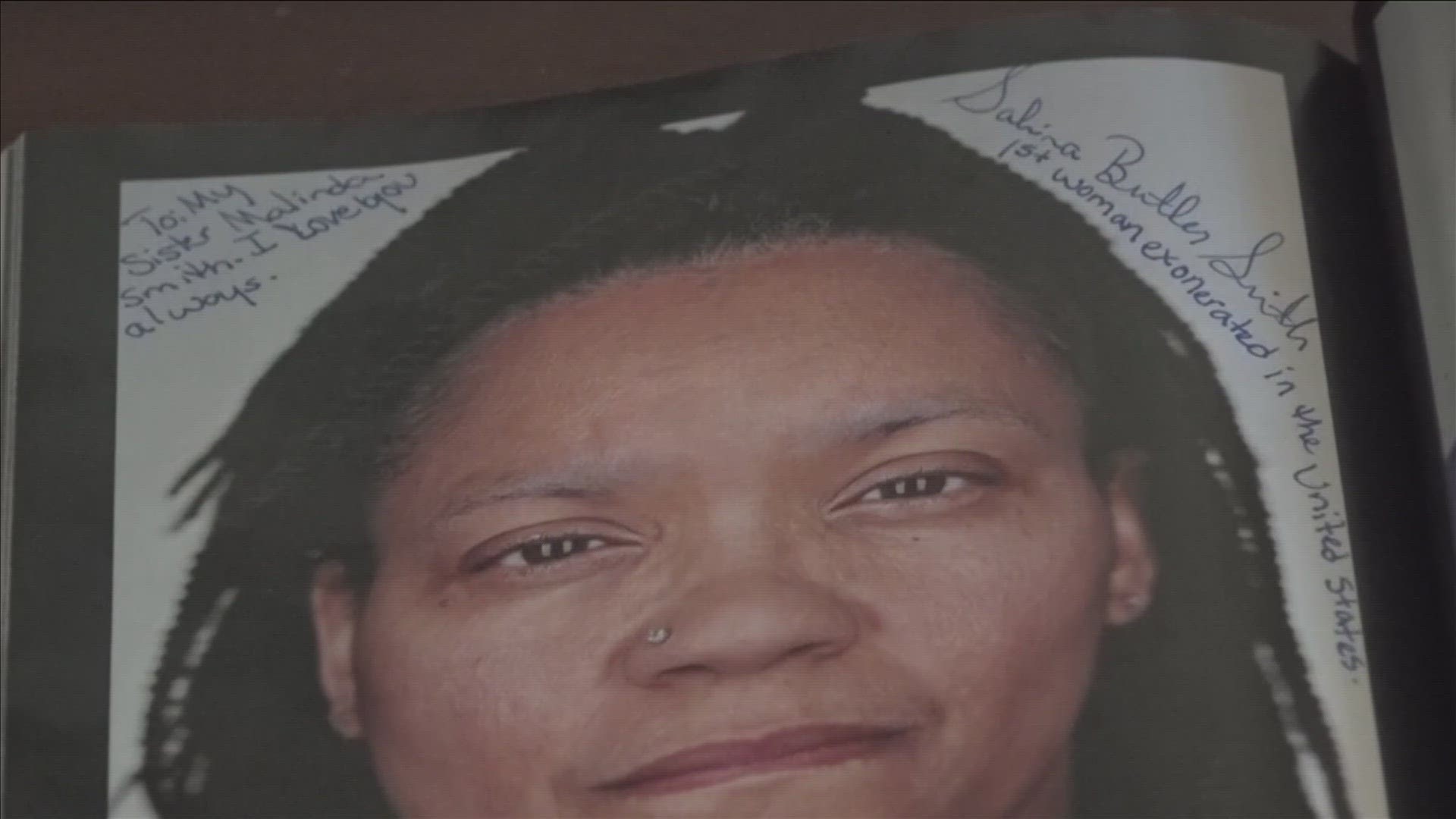MEMPHIS, Tenn. — Sabrina Butler-Smith is the first woman in the history of the United States to be exonerated from death row, but since her release almost 20 years ago, the Memphis resident has been on a relentless mission to help those who are working to put their lives back together after prison.
“I wouldn’t wish this, what I went through, on anyone,” Butler-Smith said.
She has been speaking publicly about her experience since 1996, sharing her story of spending more than 5 years in prison and 33 months on death row.
The then 17-year-old Butler-Smith was arrested for capital murder following the death of her 9-month-old son Walter on April 12, 1989.
“They kept saying 'you beat your baby,'" she recalled. "'You stomped him, you did this, you did that.' I kept trying to tell them what happened. They didn’t want to hear that.”
At trial, the state sought the death penalty, stating that the mother had intentionally beaten her son to death.
“They charged me with capital murder," Butler-Smith said. "They charged me with a child abuse charge that wasn’t even a law until 23 days after I was incarcerated.”
Following a short trial, in which she said her lawyer counseled her not to testify, Butler-Smith was convicted on all charges and sentenced March 13, 1990. Her execution date was set for July 2 of that same year.
Through it all, Butler-Smith believes the hardest part was not being able to grieve the loss of her child.
“I lost my son," she said. "I didn’t get a chance to go to his funeral, didn’t know where he was buried. I didn’t know anything. I didn’t even know what he died from until the second trial.”
Butler-Smith said she is still haunted by memories of the day she was scheduled to be executed.
“July the 2nd came around," she recalled. "I paced the floors, I listened for every chain, every sound, because I actually thought they were going to kill me.”
In 1995, her case went to re-trial with new council during which numerous prosecutorial violations from the first trial emerged, as well as witness testimony corroborating Butler-Smith's account that she had been instructed to administer CPR and “blow in his mouth, hold his nose and press in his stomach," she said.
She later discovered that was the wrong way, because she applied adult CPR to her son all the way to the hospital, the result of which had led to severe bruising on the child, giving the appearance of a beating.
At the second trial, it also emerged that Walter suffered from several underdiagnosed medical conditions, including polycystic kidney disease, which Butler-Smith said is hereditary and had likely caused him to stop breathing in the first place.
“It was nothing that I had done to cause his death," Butler-Smith said. "Nothing at all.”
On Dec. 17, 1995, Butler-Smith was acquitted and exonerated, but she found adjusting to life outside of prison to be difficult.
“There was no mental help for me," she said. "There was nothing for me as an exoneree to receive when I got out.”
This inspired her to start an organization dedicated to helping women who are being released from prison reintegrate back into society.
“It’s called SMJK Mission from God with Hands of Hope," Butler-Smith said. "… I saw a need for halfway houses for women. We’re going to be helping with housing, education, job training.”
Her work also continues with the Witness to Innocence project, which raises awareness about wrongful convictions in the United States Criminal Justice System.
“There (are) 192 death row exonerees in the United States right now," Butler-Smith said. "That’s too many mistakes.”
More information about her work helping women parolees reenter society can be found HERE.

